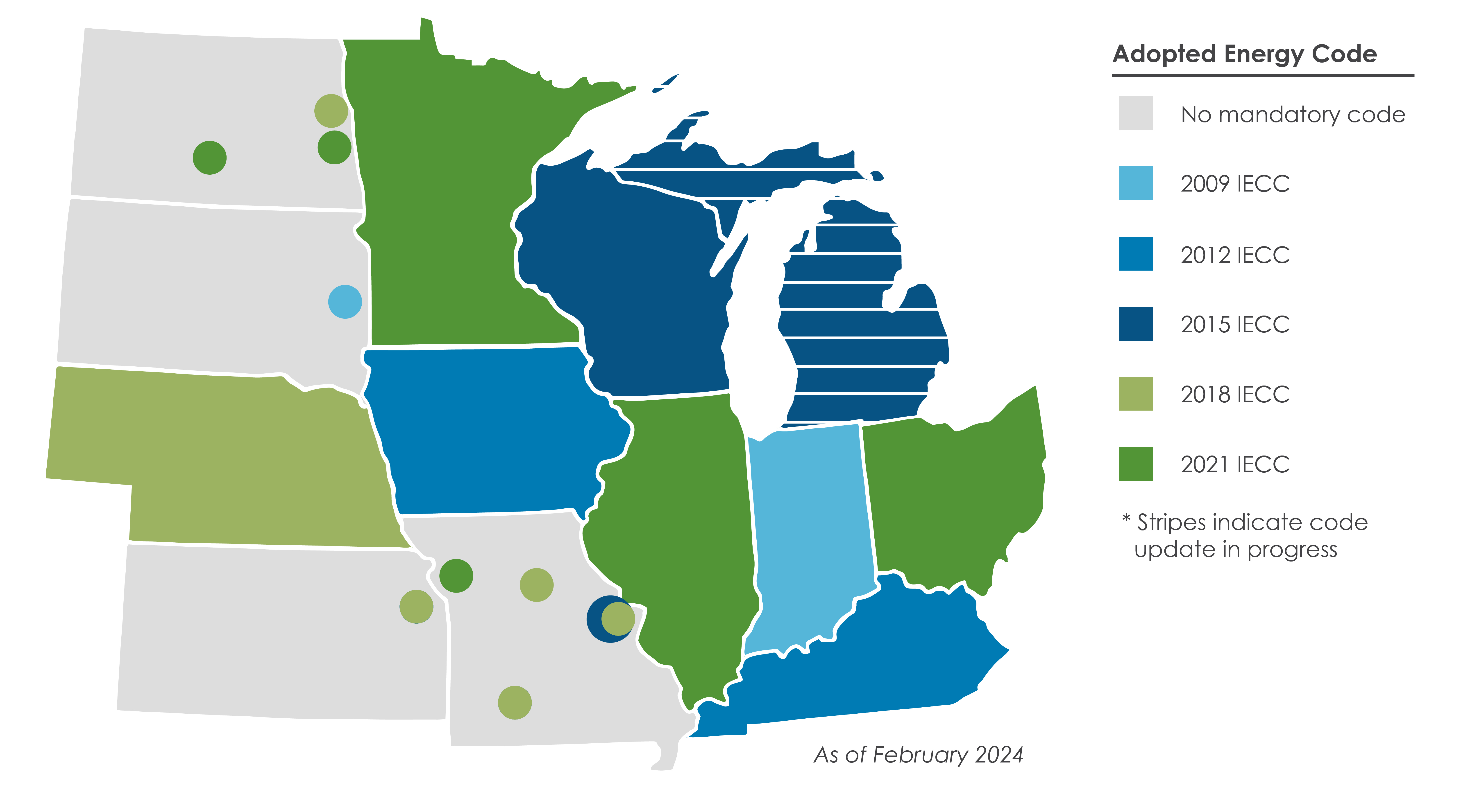Commercial Buildings
Commercial buildings are a major part of our everyday lives. The Department of Energy defines commercial buildings as the following: buildings other than low-rise residential buildings, including multi-family high-rise residential buildings over three stories in height above grade. Buildings containing residential and commercial spaces are considered separately for compliance with model energy codes. According to the US Energy Information Administration, there are nearly 6 million existing commercial buildings, and that number continues to grow.
Commercial Building Energy Code Adoption

Commercial Building Energy Codes
Since commercial buildings are much different both in size and function than residential buildings, they must have their own set of building codes. These codes ensure that the tenants' health, safety and comfort levels are at acceptable levels. Because these types of commercial buildings can vary so much, these codes will often be industry specific. For example, requirements for a restaurant will not be the same as what is required for a storage facility.
There are two common methods to ensure commercial buildings are up to appropriate standards. The International Energy Conservation Code (IECC) contains energy conservation requirements that address the energy use of both commercial and residential construction. Some states or jurisdictions adopt the IECC for both residential and commercial buildings. However, there is a special standard that addresses only commercial buildings that states can adopt to ensure commercial buildings are built efficiently– ASHRAE Standard 90.1. Although similar to the IECC, 90.1 is a standard rather than a code, thus establishing performance requirements without the enforcement requirements of a code.
MEEA’s Work in Commercial Buildings
Building Operator Certification
MEEA administers the Building Operator Certification (BOC) program across the Midwest. The BOC program trains facilities personnel to understand how a building’s connected systems – HVAC, electric, lighting, etc. - work together and how to operate the building energy efficiently. Installing new technology is only half the story. In order to get the most out of a commercial building, operations and maintenance staff must learn to manage and analyze energy usage properly. BOC provides the training to keep building operators up to date on the newest energy technology available and to hear best practices firsthand from experts in the field. To learn more about Building Operator Certification, visit BOCcentral.org.